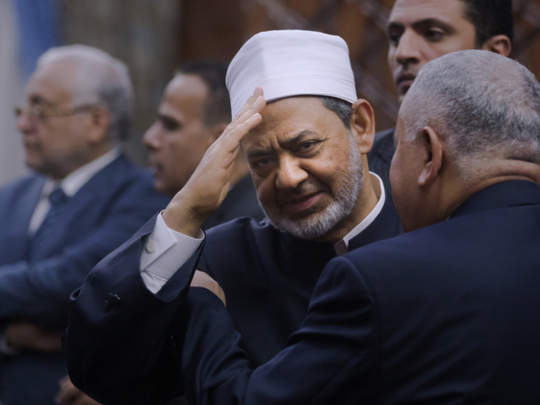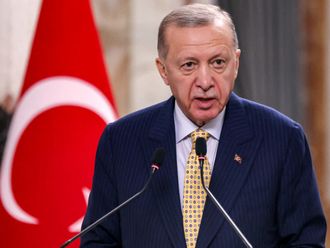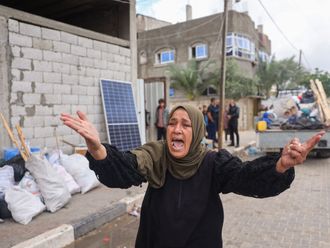
Cairo: When Pope Francis visits Egypt’s Al Azhar this week, he will find support for his message of peace in the venerable Islamic authority praised as a bulwark against extremism.
Former army chief who overthrew his Islamist predecessor in 2013, Egyptian President Abdul Fattah Al Sissi believes that Islamist extremists could be better challenged on theological grounds.
“He thinks that extremist ideas have thoroughly infiltrated Muslim societies and they are latent” but could set off “a tidal wave of devastation,” said a member of a foreign delegation that met Al Sissi.
Al Azhar and its Grand Imam Ahmad Al Tayeb have endorsed Al Sissi’s call for reforms.
Dating back almost 1,000 years, the prestigious institution runs a university and schools across the country, and thousands of international students from as far as China come to study religion and return home as clerics.
The clergy of the traditional Sunni bastion loathes the radical theology of Islamist militants.
“By God, I will contest you before God on the Day of Judgement,” Al Sissi told the clerics in a 2015 speech outlining the need for religious reforms.
Al Sissi’s calls for reforms emboldened secular and modernist critics of Al Azhar as well as clerics seeking influence with the president.
One such cleric, endowments minister Mokhtar Joma’a who runs the country’s mosques, decided to impose a written Friday prayer sermon on all preachers to weed out extremist rhetoric, which Al Sissi had demanded.
Al Sissi later distanced himself from the attempt and Joma’a backed down.
In January, Al Sissi asked the clerics look into amending divorce procedures to invalidate the Islamic practice of verbal divorces.
Al Azhar’s top body, the Council of Senior Scholars, refused. “It was a consensus vote,” a cleric who sits on the council told AFP.
Following three Daesh suicide bombings of churches that killed dozens of Coptic Christians in December and April, citizens looked to Al Azhar for answers.
Mohammad Abu Hamed, a lawmaker, introduced a bill to reform the institution, which the constitution empowers as Egypt’s authority on “Islamic affairs.”
The bill includes term limits for the Grand Imam, who currently can serve as long as he wants.Al Azhar strongly rejects assumptions that its teachings lead people to violence, pointing out the conferences it has organised to counter extremism and a monitoring group it set up to challenge their ideology.
“The criminals who commit these crimes do not include a single suicide bomber who studied even for a single day in Al Azhar,” Tayeb’s deputy Abbas Shoman said in a newspaper interview.











